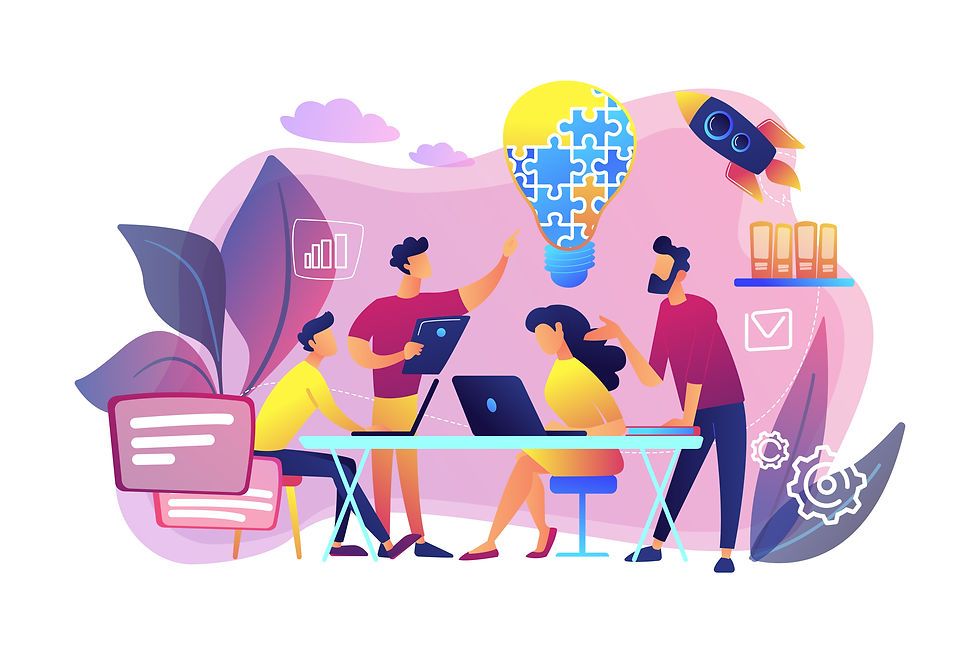Read.Watch.Listen. Engineers as Policy Makers
- SE3 Committee
- Nov 13, 2024
- 3 min read
November 2024 Issue
A monthly forum to share diversity, equity, and inclusion resources.
Welcome to the next installment of Read.Watch.Listen. This month, elections have taken place at national, state, and local levels that will impact the built environment, our industry, and our society. As such, we would like to spotlight the policy work engineers have done and are doing to advocate for engineering and our communities in the legislature. We hope that engineers can see this as a call to action to fight for the things that you care about.
One example of engineers as policy makers is the American Council of Engineering Companies (ACEC), who has made The Hill’s list of DC’s top lobbyists for the second year in a row. One of ACEC’s main objectives is to advocate “for policies that empower the engineering community and contribute to the nation’s progress”.
We would also like to acknowledge other cultural observances happening during the month of November and invite you to check out past Read.Watch.Listen issues on these: Native American Heritage Month and Veteran’s Day (November 11th).

Designed by Freepik
Read.Watch.Listen is a monthly forum hosted by the NCSEA SE3 Committee to share and promote conversations on diversity, equity and inclusion within the structural engineering profession. Each month, we will curate a series of articles, audio-visual and digital media to facilitate self-education in matters that affect our professional practice as structural engineers. Whether you choose to read, watch, or listen (or all three!), we hope you will join us in this important conversation. Missed the previous issue? Check out the NCSEA SE3 Committee News and Publication page.
Share your thoughts and/or recommended resources for the next issue at ncsea@ncsea.com.
How Engineers Can Engage More Effectively in Public Policy - Engineering for Change
This article is an adaptation of a talk by Dr. Jana Milford at the Eleventh International Conference on Engineering Education for Sustainable Development. Because engineers have a duty to the safety, health, and welfare of the public, we engage with public policy through laws, codes and standards, and within the financial priorities that make up public policy. By examining our values, and how those values could drive the creation of policy, engineers can work to take a more active role in the policies that shape our work. The article highlights why engineers should get involved in public policy, how engineers engage with public policy, and what skills are needed to effectively participate in public policy.
Originally published July 7, 2024; Estimated Read Time - 7 minutes
Engineers beyond engineering – the art of being an engineer - TEDx Talks
Philippe Rival, a former engineering student at Imperial College, shares his experience in academia and the ways the engineering profession can grow and change. While in school, Philippe desired to venture outside of engineering and follow other passions, but found others were unwilling to do the same. To him, one becomes an engineer because of their passion for people and the environment and their desire to help others. In his speech, Philippe urges engineers to share their ideas with society, and for society to be more welcoming of engineers.
Originally aired May 19, 2014; 00:11:22
Why Civil Engineers Should Get Involved in Government Policy - Engineering Management Institute
In this episode, The Civil Engineering Podcast talks with Jennifer Sloan Ziegler, a Project Engineer focusing on water resources and how public policy impacts engineering and the services engineers provide. She discusses how policies are often made by individuals without technical backgrounds, and engineers should get involved to ensure that decision makers understand how their work affects the practice of engineers. It is crucial for engineers to help solve policy problems, instead of just complaining about unrealistic requirements. It is our responsibility to explain our knowledge clearly to non-technical audiences and policy-makers, if we want to help effect change.
Originally posted October 14, 2018; 00:40:20
This article was originally published in the November 2024 issue of NCSEA's Structural Connection newsletter. For more information, check out NCSEA's DEI Resources.








Comments